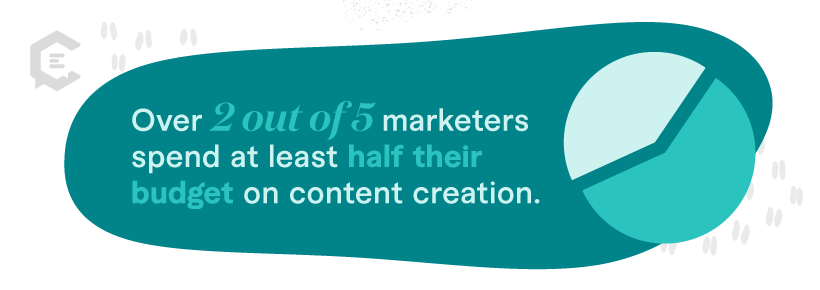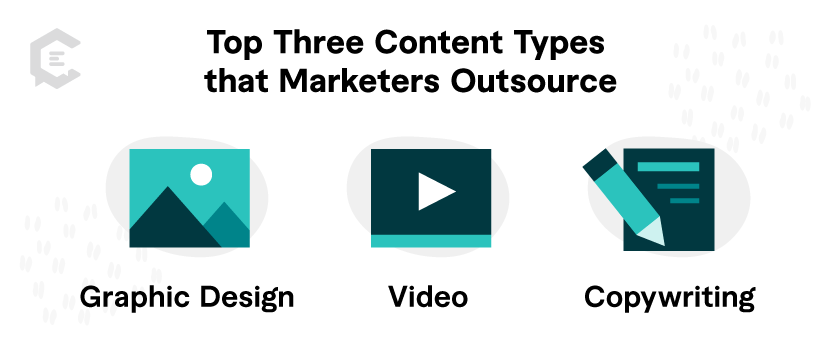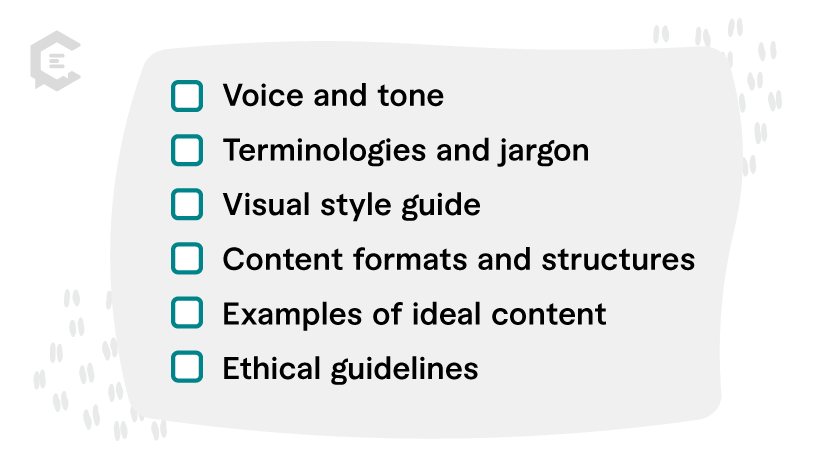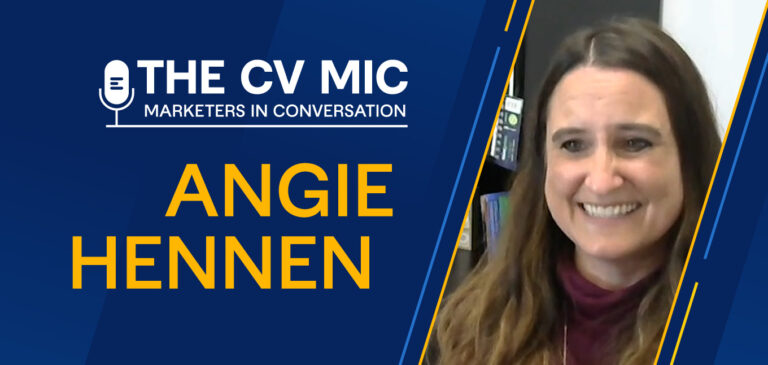“We need more content. And we need it faster.”
The breakneck pace of the digital landscape can challenge even the best content marketers. Your content marketing success now hinges on your ability to produce top-tier content quickly and consistently. But how can you keep that pace without burning out yourself and your team?
By outsourcing. Outsourcing content marketing can be the difference in whether your brand levels up.
This comprehensive guide will dive deep into the best strategies and practices to leverage the full potential of outsourcing your content. Then, we’ll cover how to find the right freelancers and content agencies for your business while ensuring they align with your brand.
The Value of Outsourced Content in Today’s Landscape
Most industries are oversaturated in the digital space. Having a well-crafted and high-level content strategy has become an absolute necessity to stand out in the marketplace. And with that, the traditional model of relying solely on in-house teams is being re-examined.
The Gig Economy’s Impact on Content marketing
Approximately 150 million people in North America and Western Europe now work as independent contractors. And most of them operate in knowledge-intensive industries.
For content marketing, that exponential rise in freelancing has created access to a massive array of diverse talent. And that talent is only increasing. Over 50% of the US workforce is predicted to participate in the gig economy by 2027. That gives businesses an unprecedented opportunity: access to a growing reservoir of affordable, high-level talent.
A lot of companies are already taking advantage of this. A recent Content Marketing Institute study found that 57% of the most successful content marketers outsource content marketing activities. And 84% said they hire contractors and agencies specifically for content creation.
Why outsource your content creation?
Outsourcing your content creation is one of the most effective ways to maximize the full potential of your budget. Over 2 out of 5 marketers spend at least half their budget on content creation. A large portion of that expense can come from keeping a full-time in-house content creation time. And you’re not only paying for their work. You’re also covering expenses and benefits. Outsourcing allows you to forego all the overhead costs and jump straight to content creation.
But outsourcing content creation isn’t just about cutting costs. Its real value lies in the cross-section of cost-effectiveness and high-level talent. And understanding how to leverage that combination allows your business to utilize expertise affordably without compromising quality.
Plus, establishing a solid foundation in outsourcing makes it easier to adapt your business to evolving needs. Whether contracting more freelancers with specific skills or partnering with a content creation agency, outsourcing is a flexible, scalable solution. But before you start outsourcing your content, there are some things you need to identify.
Identifying What Type of Content to Outsource
The first thing to consider is which part of your content creation would benefit most from outsourcing. Every content type serves a unique purpose. Blog posts engage your target audience and create a connection with them. Whitepapers position your brand as an industry thought leader. Identifying which content to outsource is your first step in the process.
Take a look at the current state of your content production. For example, let’s say your in-house team grapples with tight turnarounds and can’t afford to immerse themselves in extensive research. Outsourcing more complex, time-consuming content pieces like eBooks and whitepapers can be a strategic move. That way, you save your team time and energy while ensuring the content is crafted by a skilled expert.
On the other hand, it’s about quantity. You might need a steady production of fresh blog posts and social media copy over a long period of time. Partnering with a content creation agency can infuse new energy and momentum into your strategy while ensuring all the content is consistent and high-quality.
Assessing internal capabilities vs. external expertise
Another area to look at is your in-house team. Perform a comprehensive internal review, assessing the strengths and weaknesses of the entire team and its workflow. Do they excel at blog articles but struggle with technical writing? Maybe they’re great at all the long-form written content but could use help with visuals.
According to a recent study, these are the top three content types that marketers outsource:
- Graphic Design
- Video
- Copywriting
Once you’ve pinpointed the gaps in your content creation, that’s where you can plug in external expertise. Hiring vetted, seasoned freelancers means you’re employing their specialized skill sets. And that ensures the specific content you outsource will be at the highest level. Plus, it’ll free up your in-house team to focus on the content they excel at.
If any of this feels overwhelming, ClearVoice has you covered. We’ve created a Step-by-Step Guide to Outsourcing Your Content Creation eBook that has everything you need to get started. Check it out here.
Finding the Right Fit: Vetting Freelancers and Agencies
Once you’ve identified the content you’re outsourcing, it’s time to put it in the most capable hands. Not every freelancer or agency is going to align seamlessly with your brand. You have to know where to look.
Platforms for finding reliable freelancers
There are a lot of places out there brimming with freelancer talent. Some of the most recognizable platforms are Fiverr, Upwork, and Freelancer.com. And they’re worth a look if you’re looking to employ specific skill sets for one-off pieces. The benefit of hiring individual freelancers is its cost-effectiveness. They’re typically cheaper than a content agency and great for small projects.
But, there are two main issues in hiring an individual freelancer:
- Scalability
- Long-term use
If you’re looking for a more comprehensive approach, a content agency offers a broad range of expertise and experience. They’re typically better equipped to handle larger-scale projects and high volumes of content. Content agencies are also tailored to specific industries and content needs. For example, our ClearVoice platform caters specifically to content creators and marketers, which means a richer pool of specialized talent.
But remember, it’s not just about finding a freelancer or agency. It’s about finding the right freelancer or agency. That means using a specific set of criteria.
Key criteria to evaluate potential content agencies
Expertise and Credibility
Expertise is the foundation of impactful content. When vetting potential content agencies, you’re looking for a trustworthy partner. That means it’s not just about talent. It’s also about partnering with true experts who can speak with authority on your content’s subject matter.
Examine a content creation agency’s portfolio thoroughly and evaluate the quality of the content they’ve executed. Have they managed a broad range of content types? Is their content engaging and captivating? Most importantly, does their style potentially align with your brand?
You also want to see credibility that backs up that expertise. As you research content creation agencies, ask yourself: Do they have a proven track record? Have they earned any recognition? See if they have any testimonials or reviews. Those can speak volumes about a content agency’s professionalism and reliability.
Communication
Like any relationship, communication in marketing is essential. It’s the bridge between vision and execution. Effective communication with a content creation agency means regular check-ins, feedback channels, and honest discussions. In your initial talks, do you feel like the conversations flow seamlessly? Are your concerns being addressed promptly?
Ethics
Ethics in content creation goes beyond accurate citations and avoiding plagiarism. It’s about producing consistent content that’s honest, transparent, and respects the audience’s intelligence. Partnering with a content creation agency that prioritizes ethical standards means your brand’s reputation and integrity are safe. It also means your audience is always presented with trustworthy information. After all, it’s not just about what you say but how you say it.
Ensuring Brand Alignment and Authenticity
As your outsourced content marketing produces content across multiple channels and creators, it’s essential to maintain a consistent tone that is unique to your brand. You don’t want to lose your brand voice. It’s not just about producing content; it’s about creating content intrinsic to you and your business.
To ensure this, set clear expectations from the beginning. Create a comprehensive style guide that dives deep into your brand’s nuances. Here’s what to include:
- Voice and tone
- Terminologies and jargon
- Visual style guide
- Content formats and structures
- Examples of ideal content
- Ethical guidelines
With those clear-cut guidelines in place, you’re giving external creators the tools they need to create content aligned and authentic to your brand.
The feedback loop: Revision and approval processes
Outsourcing content marketing is a collaboration. And like any collaboration, it thrives on communication. Feedback is a cornerstone of that communication. Its main value lies in its cumulative effect. As feedback is consistently given and integrated over time, freelancers or content creation agencies can attune more to your brand’s specific voice and style. Establish a clear revision process where content is reviewed, feedback is given, and changes are implemented before final approval.
Outsourcing Content Marketing Next Steps
Navigating outsourced content marketing can have a transformational effect on your business. But it’s not without its challenges. And if you’re thinking about taking that step, we’re here to help. We’ve tailored our managed content creation services to connect businesses with top-tier content creators and strategies. Talk to us today to maximize your content strategy’s full potential.








